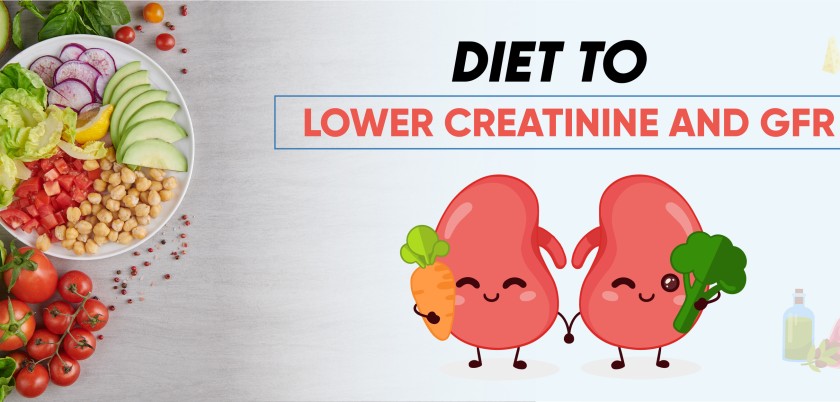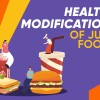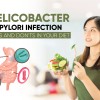
Diet to lower creatinine and lower GFR
Kidneys are the body's main excretory organ which filter out the fluids and nutrients that the body needs from the blood and excretes out toxins, waste products and extra fluids as urine. Any diagnosis of kidney disorders disturbs this balance and causes a rise in blood urea and creatinine levels (both are the body's waste products) and a fall of glomerular filtration rate (GFR) i.e. decline in kidney function. This needs to be carefully monitored. Lifestyle changes involving diet and physical activity can aim to improve the GFR specially in those suffering from some kidney ailment.
Note - Increased creatinine and low GFR usually go hand in hand. One issue will be present with the other alongside. The below mentioned guidelines are in general for those suffering from kidney disease, but patients should always consult their healthcare provider for their individualised diet plan.
Dietary modifications for lowering the creatinine levels and raising the GFR
A few dietary changes can lead a person to low creatinine levels such as -
1. Limit the intake of animal protein - Red meat and fish are both sources of creatine which breaks down into creatinine when cooked. So for reducing creatinine levels, limit the intake of animal protein and rather shift to vegan protein options. So maintaining a vegetarian or vegan diet plays a key role in the health maintenance of those with kidney disease. Also the diseases that are the risk factors for kidney damage such as diabetes and high blood pressure are also improved with a vegetarian diet.
2. Refrain from diuretic intake - Diuretics are the substances that help to remove excess body fluids. They can raise creatinine levels in the body. Caffeine in coffee, tea and green tea pose a strong diuretic effect and their consumption should be limited for improved GFR and low creatinine levels.
3. Restrict the intake of salt - Excessive consumption of salt leads to high blood pressure which further may progress to certain kidney diseases. High sodium foods are basically difficult to be processed by damaged kidneys. So avoiding the consumption of extra salt is a good strategy to stay away from renal issues. One of the best possible way for this is avoidance of packaged, canned and processed foods as well as pickles as they contain sodium in excess. If less salt leads to low flavours, try adding other herbs and spices for enhancement of flavour.
4. Limit the consumption of high phosphorus and potassium foods - As the declined kidney function leads to electrolyte imbalance, so all those people with acute or chronic kidney infection should limit the intake of foods rich in potassium and phosphorus. Potassium rich foods include potato, sweet potato, bananas, broccoli, raisins etc. Phosphorus dense foods are milk, yoghurt, cheese, chocolate etc.
5. Cut down smoking and drinking - Consuming cigarette tobacco and alcohol is linked to various kidney ailments. So avoidance of these is the best strategy for aiming a healthy lifestyle. Tobacco consumption raises blood pressure, which in turn leads to kidney damage.
6. Add up fibre rich foods - Various studies have elaborated that the consumption of high fibre foods such as raw fruits, vegetables, whole grains and seeds etc. play a role in lowering the creatinine levels in those individuals suffering from chronic kidney disease (CKD).
7. Hydrate yourself - Dehydration paves a way for kidney damage and thus raise creatinine levels in the body. Dehydration can be a deadly condition which may cause symptoms such as fatigue, dizziness and light headedness. Well hydrated body aids kidney function by flushing out more toxins. But those with end stage renal disease should take water with caution because of the fluid retention in their bodies.
Types of diets for improving GFR -
There are two diets which are very useful when followed by a patient with kidney disease - Mediterranean diet and DASH diet.
Mediterranean diet -
Mediterranean diet includes the foods eaten by the people residing near Mediterranean sea which encourages the consumption of fruits, vegetables, whole grains, nuts, seeds, legumes and heart-healthy fats. It discourages the usage of refined sugars, trans fat, red meat, organ meat and processed foods. So this basically uses minimally processed plant based foods and monounsaturated fats (MUFA) from olive oil but low in saturated fats and dairy products. This diet has shown to benefit those with kidney disease by slowing down the renal damage further and also delaying the kidney damage.
DASH diet -
DASH diet is a diet rich in fruits, vegetables, low-fat dairy, whole grains, fish, poultry, beans, seeds and nuts. It limits the intake of sodium, sugar and red meat. Research has shown that this diet prevents kidney damage from getting worse.
• Overall both these diets are quite similar. Both are nutritionally balanced as well as flexible as no food group is strictly prohibited. Additionally both these diets can be followed for a long term as they are sustainable. Also its proven that both these diets reduce the risk of chronic kidney disease by 30 percent. Just a word of caution to boil the vegetables before consumption and throw that water to reduce the potassium content significantly.
Although there is a long list of foods that are best to avoid on a renal diet, but there is also a wide range of foods that people can eat for healthy kidneys.






